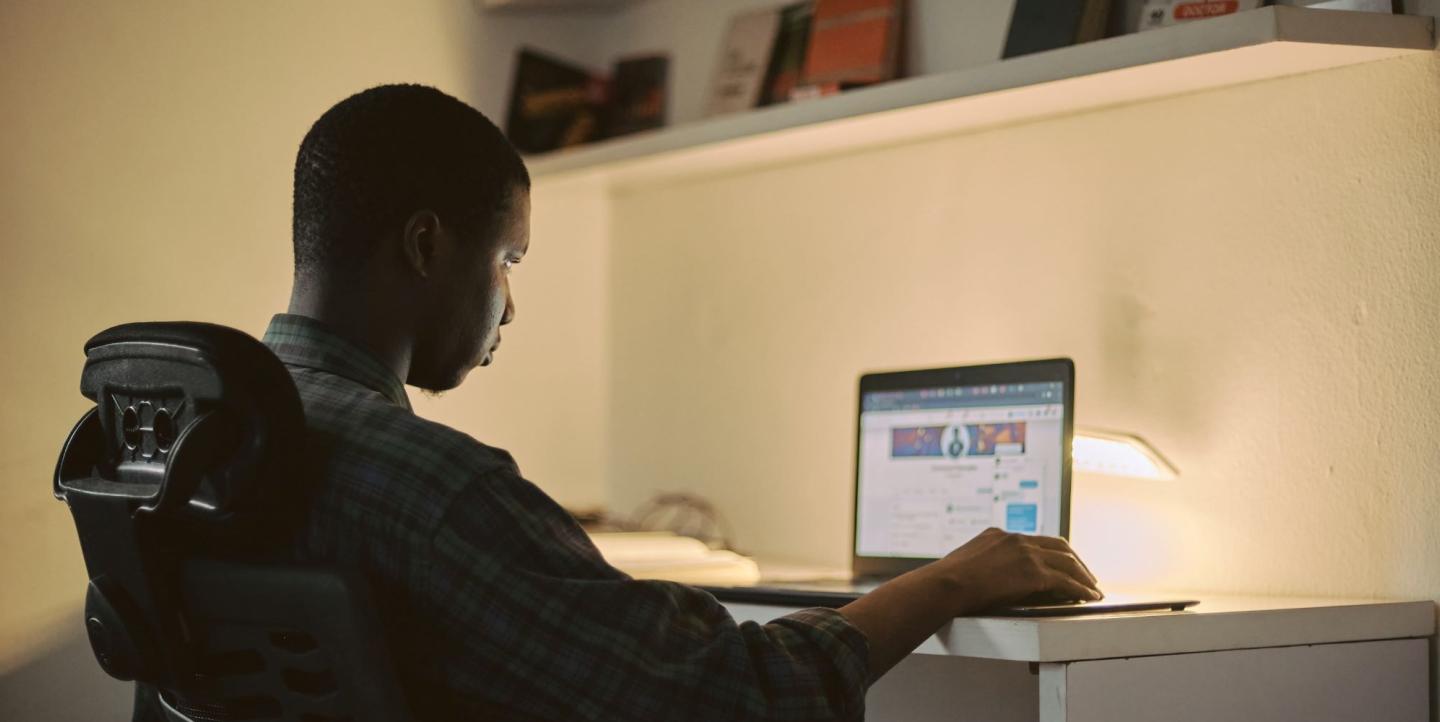Venturing beyond their university campuses, journalism students in Nigeria are immersing themselves in the world of investigative reporting. With each revelation their reporting digs up, they unravel deep-seated wrongdoings that plague the nation, leaving an indelible mark on society. Their reporting, like magnets, draws the attention of national media outlets, enabling them to disseminate their findings to larger audiences.
These intrepid student journalists’ bold pursuit of truth comes at a price, however – a consequence of their unwavering commitment to evidence-based, honest reporting. Not only does their physical safety come under threat, but their mental resilience, too, is put to the test.
Student experiences
Shereefdeen Ahmad, a student journalist at Usmanu Danfodiyo University in northwest Nigeria, published an investigation that exposed how teachers were exploiting students on private farms, which brought his mental well-being under duress.
"I faced mental distress after publishing. The state government [...] urg[ed] removal of the story that was published, but I stood firm. Their threats escalated, prompting us to seek help from the civil defense station. Surprisingly, they supported removing the story," Ahmad explained. Trauma overwhelmed him, accusatory fingers and constant scrutiny deepening his distress. Isolation became his refuge.
Despite the mental toll he endured, Ahmad found solace in the encouraging words of fellow journalists. "Amidst the turmoil, senior colleagues empathetically reassured me, 'Don't blame yourself; it's common for journalists.' Their comforting words eased my trauma, soothing my anguish,” said Ahmad. “Understanding that arrests are part of a journalist's path brought solace. Within three weeks, I emerged stronger, ready to embrace the future."
Mohammed Taoheed, a student journalist at Usmanu Danfodiyo University in Nigeria, recounted the profound impact that one story he reported had on his mental well-being.
"The toll on me was immense," he said. During one of his interviews, his source shared a heart-wrenching narrative of enduring abuse and the ongoing torment of facing her abuser years later. With no legal recourse due to a lack of evidence, every encounter with the man brought her to tears. Taoheed found himself unable to suppress his own emotions.
“While working on my gender story, it deeply affected me to the point where I questioned my ability to continue,” said Taoheed. “The thought of a rape victim having to witness her abuser preaching in a church daily, without evidence to seek legal action, brought me to tears. Student journalists like myself endure immense pain without receiving the support needed to alleviate our burdens while covering such stories.“
The weight of the story became too much to bear, forcing him to exclude certain details that would have added depth to his report, he said.
Mental health support for student journalists
Working in the journalism field comes with an array of potential threats to one’s well-being. As a campus reporter, students are also faced with stress that accompanies being a full-time student.
"Student journalists are exposed to the rigors of journalism, gory photos and harsh environments to get a story done which can impact their mental health adversely unless it's tended to immediately,” said Stephanie Adams, a program director at the Center for Journalism Innovation and Development (CJID). “Several student investigative journalists have taken a break from the profession due to its impact on their mental health.”
As an effort to assist student journalists whose mental health may be negatively impacted by their reporting, CJID began offering psychological support for young journalists in 2018. These resources include counseling sessions designed to help young reporters navigate stressful situations, regain their confidence and clarity of thought.
“CJID offers psychosocial support for student journalists who have had to contend with the challenges of balancing their studies, navigating the school structure and pursuing their journalistic interests,” said Adams. "Student journalists appear to be under a lot of pressure to keep up with their more seasoned counterparts' work or even to imitate high-level investigations without adequate psychological and social support ahead of the process and after the fact."
While organizations like CJID are finding ways to prioritize student journalists’ mental health, many university publications have begun collaborating with media outlets to protect young reporters’ independence.
“I was able to publish campus-based investigative stories in the Nation Newspaper through the campus life platform. The mentorship I received from the [Nation’s] campus life editor helped me generate more story ideas and motivated me to improve my skills,” said Ahmad.
Photo by Emmanuel Ikwuegbu on Unsplash.


